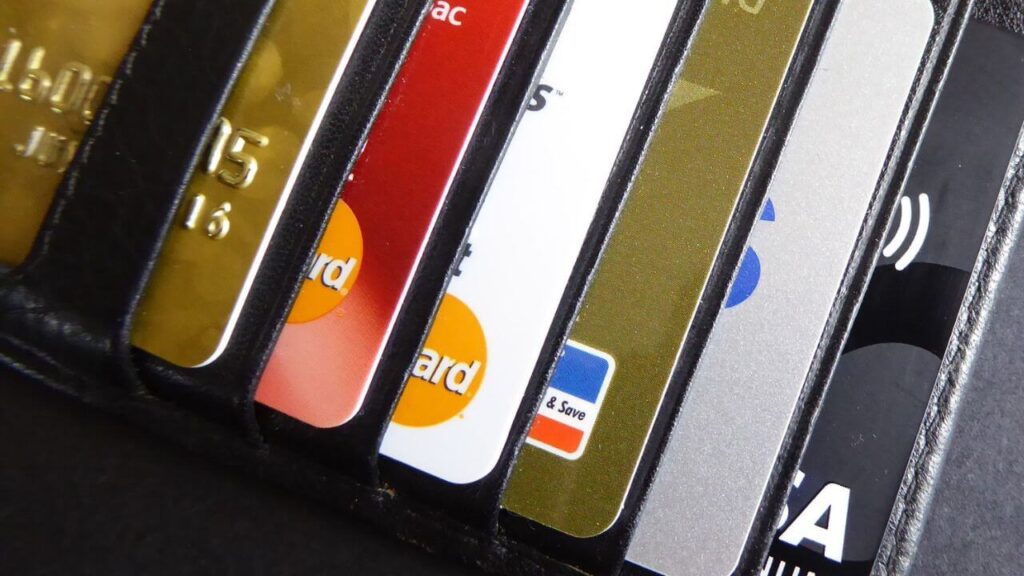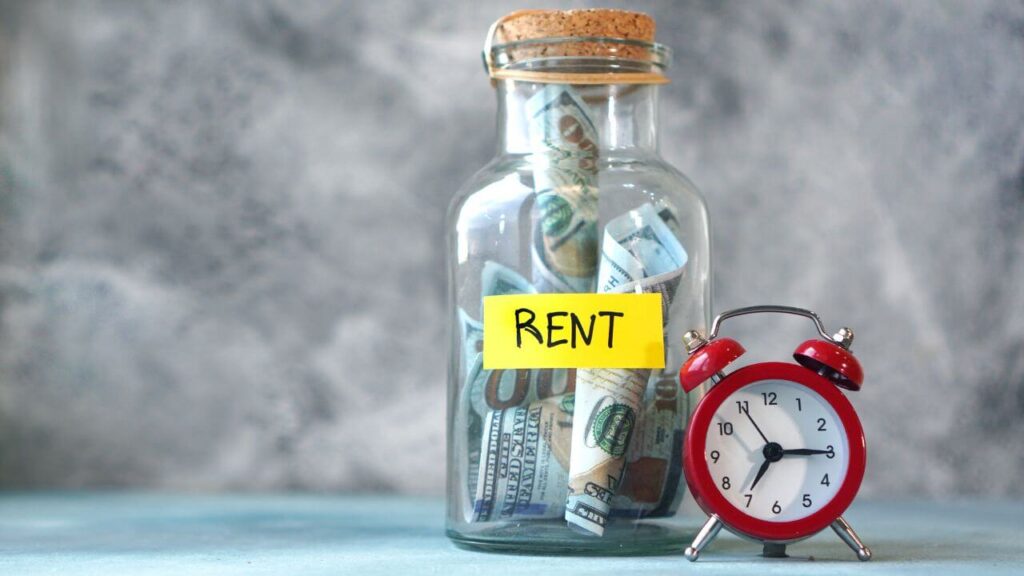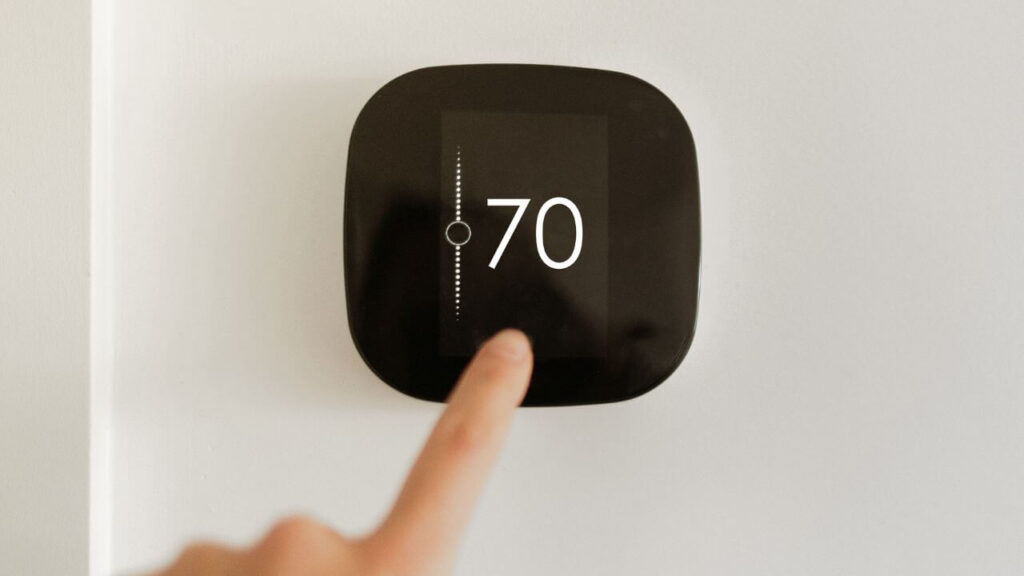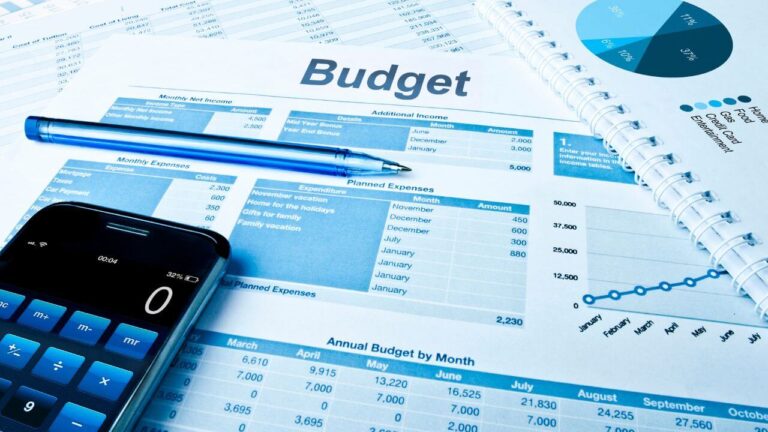How to Lower Monthly Bills: 90 Tips for Consideration

Inflation is causing everything to go up. If you don’t believe me, which I know you already do, check out what you were paying for in the last few years and compare it to today. The results can be disheartening. Looking for ways on how to lower monthly bills has become a priority for many individuals and families.
With the horrible feeling of being hit in the pocket from every angle, it has been my desire to seek out different ways on how to lower monthly bills to save some money. Below, I have outlined 91 tips to consider when trying to chip away at the amount you spend per month on bills. Every option may not apply to you. Pick and choose the most applicable to you, and let me know if I missed anything!


Automotive
- Refinance Your Auto Loan. Lowering your car payment by qualifying for a better interest rate is possible. However, I don’t recommend extending the length of your loan since it increases the time to pay it off. Interest rates are currently high, so evaluating whether refinancing is in your best interest is always important. To qualify for refinancing, consider your car type, credit history, credit score, payment history, mileage, loan-to-value, and debt-to-income ratio.
- Sell Your Unused Car(s) if They’re Not Needed. Do you own more than one car? Have you considered selling one of them to pay off or reduce the debt on your primary vehicle? Selling an unused car can help you pay off debts, reduce the costs related to maintenance, such as insurance, registration, and oil changes, and create more space in your garage.
- Reduce Your Insurance coverage for an Older Car. You could save money by lowering the insurance coverage on an older car, resulting in a lower premium, mainly if it’s hardly used. As a car ages, its value decreases, so reducing coverage could be an excellent way to avoid over-insuring an older car.
- Ask about Auto Insurance Discounts. Several auto insurance companies provide different types of discounts to their customers. These include a good driver discount for those with a clean driving record, an anti-theft device discount for installing an alarm or tracking system, a low-mileage discount, a military discount, a senior group affiliation discount, and more.
- Shop Around for Other Automotive Rates. How do you know if you are missing out on a lower rate, discounts, or policy features? Shop around for better rates. This ties in with refinancing your auto loan, but first, it all starts with a simple search.

Cell Phone
- Get a Smaller Cell Phone Plan. It’s important to regularly check your data usage and determine if your current plan meets your needs on an average monthly basis. Your smartphone typically provides information on how much data you use through your cell phone provider and Wi-Fi. If you’re not using your phone’s data often but are paying a high price for a large data package, it’s a good idea to compare plans with both your current provider and other providers.
- Switch Cell Phone Companies Completely. As stated above, switching your cell phone company to a different plan is beneficial. If downsizing your plan is not in your best interest, seek a more suitable plan elsewhere.
- Ask Your Cell Phone Company for Discounts. Asking your cell phone company for discounts can save money on your monthly bill. Many companies offer discounts for long-time customers and multiple lines.
- Watch out for new Annual Contracts. It’s important to be mindful of committing to new annual cell phone contracts to avoid overspending. Your usage patterns, budget considerations, and other needs evolve over time. Shorter, more flexible plans, at least one that penalizes you for canceling your plan, may be more suitable.
- Search for No Contract Packages. No contract packages offer more flexibility and avoid a long term commitment without being tied to an annual contract.
- Consider Pre-paid/Alternative Phone Plans if Applicable. Consider if a pre-paid phone plan matches your lifestyle. Pre-paid phones have a fixed price, no contracts, no credit checks, and fewer fees.
- Stick with Your Older Phone. Most new flagship phones are over $1000. to most, it is a lot of money, even if you are on a payment plan. Recent smartphones are extremely durable, last longer, and still do all the basic things that a new phone will do (Surf the internet, use the app store, make calls, etc.). Google recently announced that it is supporting its new Pixel phones for up to 7 years of security updates. I’m sure other companies will follow suit.
- Research Family Plans. Family plans offer discounts for multiple lines compared to purchasing individual plans. Shared data plans can be more cost-effective, and most plans include a lot of talk and text features.
- Cancel Extra Phone Services. Do you really need roadside assistance? Most auto insurance companies already offer it. Do you need mobile phone insurance? I haven’t had it in over 13 years and never have had a problem. I have a good, durable protective phone case. Review your phone plan and see if some phone services are necessary.
- Opt for No Phone Insurance or Change It. I mentioned this above, but I’m singling it out here. Opt for no phone insurance if you don’t need it. You’ll get a good phone case if you’re like me.
- Sell Your Old Phone. If you have an old phone or several old phones, sell them or trade them in to make some quick cash. You can use that money to pay your phone bill and clear out the clutter in the process.
- Use companies like: Gazelle, Decluttr
- Purchase a Phone You Can Truly Afford. A 1TB version of a Galaxy Z Fold5 is around $2159.99. They usually run discounts to get it down to 1359.99, but still, that is a crap ton of money! Make sure that you purchase a phone that is in your budget. The last thing you want is to buy a $2000 phone on a payment plan if you need help with bills when a $400-$600 phone will do. (*or purchase a used phone. I’ve done it several times.)
- Compare Deals from Different Service Providers. Comparing deals shows you various prices for similar packages. It helps you find more cost-effective options that align with your budget and services that fit your lifestyle.
- Try to Find a Plan with Free Services Attached. Always read the fine print on these offerings, but some companies offer free streaming services with a selective package. If you already are playing for one of the top platforms, getting it free through your cell phone provider could save you some $$.

Credit Cards
- Transfer Your Balance. One of the main reasons people transfer their balances to another credit card is to take advantage of a lower interest rate. If you have one card, I would not recommend getting a new card to do so; instead, do what you have to earn extra money to pay down the debt ASAP. Consolidating debt to repay debt is another reason people transfer their balance. But if you have gotten to this point, more glaring issues may need to be addressed.
- Consolidate Your Credit Cards. There are free support sessions that you can get from a nonprofit credit counselor that you can talk to to learn how to pay off and manage your credit card debt. Other options include balance transfers, as mentioned above, and consolidation loans. Seek out, be mindful, and be aware of your risks.
- Don’t Get a Credit Card in the First Place. I’m not totally on the side of Dave Ramsey regarding a “no” credit card usage policy. There are some benefits that I enjoy. But I recommend not getting one in the first place for many people, a rather large majority of people. Especially if you are not responsible for money. Some downsides are the tendency to overspend on purchases, fees, penalties if not paid off on time, higher interest rates, and more. If you are behind on credit card debt, your monthly bill will continually rise.

Education
- Refinance or Consolidate Your Student Loans. Anything tied to interest rates as of the time of this post is pretty daunting. Interest rates are high, but if it makes sense to you in your particular situation, refinancing your student loans could help you consolidate multiple loans into one single bill with a lower monthly payment, switch from a variable to a fixed rate, and more. There are also some disadvantages, so do your research.
- Payoff Your Student Loans Early. If you don’t have a student loan bill, you don’t have a bill. My wife and I threw everything we had on her student loan bill and knocked it out “years” before the term. Create a budget, make extra payments when you can, live below your means, and do whatever you can to tackle the debt.

Entertainment
Cable TV
- Negotiate Your Cable Bill. It doesn’t hurt to ask. Negotiating your cable bill can help save you some money on your monthly bill. Research your company to see if promotions are going on, review the competitor’s offers to load up on some ammo, check if they have a loyalty department or a customer retention department to talk to a rep, and express your concerns politely and professionally.
- Bundle Your Cable and Internet Together. For one, it’s convenient to have them both on one bill, and some providers will give you a cost-saving deal to bundle together. Some promotions offer special incentives and discounts as well as additional services.
- Get Rid of the Extras Streaming Services. If having 4 streaming services at the same time is not doing well for you, cut the services out completely, or at least some of them. If you’re working, have hobbies, and have a family, most of the time, you can’t watch all of the material anyway. Don’t waste your hard earned money signing up for too many streaming platforms.
- Cut the cord and Go Without. If you’re trying to clean up your financial life and have too many monthly payments to keep up with, cutting the cord is a viable option to free up some money. I have a free service through my cell phone company, and YouTube is a free video service that gives me enough free, accessible content to keep me busy. i mainly watch educational stuff anyway.
- Check Out the Library for Movies and Shows. My local library stocks nearly every movie and TV show that I can possibly ever want to watch, and it’s all free. All I do is log onto my account, search for the title, select to pick it up at my local branch, pick it up, and watch it in my free time. They also have a ton of books and videos for my kids as well. All for free!
- Check Out Cheap Rental Options. If free videos from the library are too free for you, there are still cheap options to rent a movie or TV show from Redbox or online from Prime Video, YouTube, and several other places. (There are also free with ads movies to watch on YouTube)
Music
- Downgrade from Paid to Free Accounts. Can you get away with a free account on sites such as Spotify and Pandora? Sure you can. Although you wont get the added benefits of features such as ad-free and offline listening, you won’t have to pay a monthly fee for it.
- The Library Has Free CDs to Rent. Most people don’t buy CDs anymore. Streaming is so convenient and prevailing. And you may not even have a CD player anymore. But if you do, there are tons of cds at the library ready to be checked out and played. And it’s all for free.

Finance
- Sign Up for a Better Bank Account. I will always keep a big-name bank account (I have my reasons). Still, I also have an online bank that gives me plenty of options and, a high interest rate for my savings account, and no maintenance fees. Having an online bank account with little to no fees helps those with a lower balance.
- Use Cash Only. Using cash (or debit card) makes budgeting so much more straightforward and reduces the possibility of overspending and avoiding debt. It is more likely to deter impulse buying as opposed to a credit card.
- Set up Automatic Payments. Avoid late fees by setting up late payments. If you have had trouble remembering to pay your bills, set up automatic payments to keep in step with consistent savings contributions and maintain a healthy payment track record. Some companies even give discounts for signing up for an automatic payment option. Just make sure that you consistently have money in your account to draw.

Grocery
- Start Meal Prepping and Cook Strategically. Meal prepping allows you to buy ingredients in bulk to properly portion food for you and your family for the rest of the week. Ultimately, you save time and money by eating at home.
- Items to use: Reusable Bento Boxes, Reusable Ziplock bags.
- Buy Food in Bulk. People buy food in bulk to take advantage of cost savings. The unit price per item sold individually is almost always more expensive than buying larger quantities. Warehouses like Costco allow shoppers to shop more efficiently and make fewer trips to the grocery store.
- Buy Generic Brands. Generic brands are usually less expensive than name brands and offer similar benefits. Be sure to compare the price and quality of all brands to see if they have similar materials and/or ingredients, and you may walk away with a deal.
- Eat Fewer Meals at Restaurants. If you eat out regularly, it can quickly become more expensive. Relegate eating out to special occasions to save money.
- Utilize Coupons, Sales, & Apps. Using coupons chips away at the price of an item to help stretch your dollar. Always search for deals and sales when shopping for big or small items, and use discount apps to find discounts on your favorite products.
- Try apps like Ibotta and other in our Resource Area
- Grow Your Own Food. Grocery prices are high, and most items have not come down much since the pandemic. If you can, growing your own food can help you supplement certain foods to save money. I have a raised garden that I made in my backyard using some cedar fence pickets, and I also use two types of grow bags for specific plants. I use some black 10-gallon Jeria grow bags for mid-sized plants and some 15-gallon grow bags with a clear see-through window for larger produce (they no longer sell the ones that I bought, but there are plenty of others here on Amazon). I also use two different types of indoor hydroponics growing systems for herbs and small plants: 1.) the Mufga 18-pod hydroponics growing system and 2.) the iDOO 12-pod hydroponics growing system.
- Cut Out Unnecessary Purchases. Do you succumb to snacks? Come on, everybody does. You go into Dollar Tree to get “one” item and come out with a basket full of stuff. If you focus on minimizing your excess spending, you can free up more money in your budget to add to your savings, debt, and investments.
- Grocery Shop with Focus and a List. Grocery shopping with a purpose helps you stay organized and budget-conscious. Creating a weekly or bi-weekly meal plan enables you to reduce the likelihood of impulse spending. make a detailed list using
- I use Google Assistant to verbally add items to my Google Keep shopping list throughout the day to have it when I shop in-store.
- Pack Lunches for Work. A previous co-worker of mine used to eat out nearly every day at work and had the nerve to wonder where their paycheck went every week. I would bring my lunch every week, and occasionally, I treat myself and eat out on a Friday. People don’t realize that a $10 combo meal 5 times a week adds up quickly to a considerable sum of money that could have been spent better.

Health & Fitness
- Switch to Lessor Gym Membership. If you’re feeling the pinch and no longer need some of the extra perks from a higher-tier gym package, consider downgrading your gym membership.
- Cut the Gym Membership and Work at Home. Consider canceling your gym membership altogether. Especially if you hardly use it. There are also plenty of free apps to download to do specific workouts from home. Walmart has several affordable dumbbells and workout equipment to use at home.
- Search for Cheaper Prescriptions. Comparing prices and searching for a cheaper alternative can help reduce your out-of-pocket expenses. Use a service like GoodRx to find coupons from thousands of pharmacies across the country to potentially save money.

Home
Bathroom
- Choose a WaterSense Type of Shower Head. WaterSense is a partnership program sponsored by the EPA that makes it easy to find water-efficient faucets and showerheads. There are tons of water-conserving showerheads to help you reduce water usage.
- Choose an Efficient Faucet. The same thing applies to the faucets. Search for WaterSense faucets to find durable, water-efficient faucets to conserve water.
Clothing
- Run Your Washing Machine and Dryer When They are Full. When your appliances are full, washing or drying your clothes reduces the time needed and helps conserve more water when running a load. The less time it takes to run your appliances also cuts down on your energy usage.
- Wash Your Clothes in Cold Water. Washing your clothes in cold water is fine for most clothing, especially delicate fabrics like lace and silk, and it can also reduce wrinkling, which can save on time and energy costs regarding ironing. Plus, the less you use warm or hot water, the less your hot water heater has to work.
- Get Some Thermals and Sweatpants in the Cold Months. Don’t knock it, but wearing thermals can drastically keep you warmer in your house without having to crank up your heat. Sweatpants and sweatshirts are more stylish and can also keep you warm as well.
- Buy Some Comfortable and Warm Socks. Warm winter socks also provide insulation and comfort in the winter months to provide cold weather protection. Layer up with thermals, sweatsuits, and winter socks to keep warm and reduce heat usage.
- Buy Used Clothing. Save money on name brands by buying used clothing. Shopping at second-hand stores generally is more affordable and allows you to choose from a range of options at a fraction of the price.
- Check out these stores in the directory
Electricity
- Unplugging Unnecessary Gadgets. Many gadgets and devices consume energy even if they are not in use. Unplugging them can reduce power consumption from these “phantom” or “vampire” power sources, reducing the amount of power used.
- Buy Energy Efficient Bulbs.. Newer LED lights last up to 25 times longer and use up to 90% less energy than old-school incandescent bulbs. You may pay a little more upfront to buy LED lights, but you will ultimately reduce the number of times you go to the store to replace a bulb since they last longer.
Heating & Cooling
- Routinely Change Your Air Filters. Swapping out air filters improves air quality throughout your home by trapping dust, pollen, and other particles, saving money. A furnace with a clean air filter can be anywhere from 5 to 15% more efficient than a dirty filter. It prevents your HVAC system from working as hard.
- Don’t Run Constantly Run Your Furnace. Constantly running your furnace leads to high energy consumption, resulting in a higher energy bill. You put more wear and tear on your unit, resulting in more frequent repairs and a lower lifespan.
- Invest in a Smart, Programmable Thermostat. I have an Ecobee SmartThermostat that allows me to create comfort setting for when I am Home, Away, and Sleep. You can also create your own custom setting. You can make a schedule for the week regarding what temperature you want the house to be based on the date and time, which is very helpful and helps save money on run times. I love it because it works remotely through the app. You can adjust the temperature up and down anywhere you have internet access.
- Control Zones in Your Home. Using something like the Ecobee SmartThermostat also comes with a SmartSensor to help you manage hot and cold spots in your home. Controlling zones in your home allow you to heat or cool specific rooms based on occupancy and usage patterns.
- Insulate Your Attic, Walls, Doors and Windows Properly. Proper insulation for your home creates a thermal barrier between your home and heat transfer. Creating a consistent indoor temperature will help lead to lower energy costs.
- Conduct a Home Energy Audit. Conducting a professional or DIY home energy assessment can show you exactly where your home’s efficiency can be improved and what should be upgraded, repaired, or sealed. Doing so can help save you money and identify problem points in your home.
Kitchen
- Run Your Dishwasher When it is Full. Dishwashing detergent companies are okay with you running your dishwasher every night or when it’s not full because if you run it more, you use more detergent, and they make more money. Maximize your usage and reduce your energy consumption by running your dishwasher when it is full.
Water Usage
- Try to Reduce Your Water Usage. Reducing your water usage leads to a lower water bill. It requires less energy to heat your water via your water heater.
- Adjust Your Water Heater Temperature. A high water temperature of around 140 degrees poses a safety hazard of scalding. It can waste anywhere from “$36 to $61 annually in standby heat loss“. Setting your water heater to a lower temperature (around 130-120 degrees) can slow corrosion and mineral buildup in your water pipes and water heater and result in additional savings.
- Turn the Faucet Off While Brushing Your Teeth. Everyone has someone in their family that does this. When they brush their teeth, they keep the water running the “entire” time. Turning off the faucet while brushing your teeth reduces the demand for freshwater resources and the impact on the energy usage required to pump and heat the water for personal use.
- Shorter Shower Times. Taking shorter showers can help you save water and energy and reduce the usage of your appliances. I use a shower head that comes with a pause button, which allows you to stop the water flow while you lather up and then resume it to rinse off. This is an effective way to conserve water and energy.
- Use Rain Barrels for Garden Usage. Last year, I used a lot of water in my backyard garden. This year, I plan on using a few rain barrels to provide water to my outside garden. As with the previous points, the less water and energy you use, the more you can save on your monthly bill.

Insurance
- Call Your Agent in Major Life Change Situations. In situations like marriage, divorce, the birth of a child, and a new driver in your home, you should call your agent to determine if your policies need to be adjusted. Bundling discounts, coverage levels, and reviews regarding deductibles could save you some money.
- Bundle Your Auto and Home Insurance (Auto & Renters) for Your Home or Apartment. Multi-policy insurance can typically be bundled together at most companies and offers a significant discount for purchasing multiple lines of insurance at one company. Plus, it is an added convenience to dealing with just one company.
- Pay for Insurance By How Much Your Drive. Pay-by-mile car insurance allows you to pay for insurance based on your mileage. Only some companies offer it, but you typically pay a base rate and then per mile you drive. They determine how many miles you drive using a phone app or an in-car device. People who usually benefit are those who drive less than 10,000 miles or less a year and are okay with using a tracking device to monitor mileage.
- Companies that offer pay-by-mile services: Metromile, Noblr, Mile Auto
- Investigate Increasing Your Deductible in return for a Lower Premium. Only do this if it is in your best interest and it makes sense for you. But increasing your deductible is a way to share in the risk you agreed to take with your insurance company in the event of an agreed-upon covered loss. Usually, with a higher deductible, policyholders are less likely to file more minor claims, reducing the frequency, which leads to lower costs for the insurance company and savings passed along to you.

Internet
- Buy Your Own Modem/Router to Save on Leasing from Your Internet Company. Most internet companies will provide a modem for you to lease from them. By buying your modem, you will own it and save some money in the long run. The same applies to buying your own router. I always buy my own router for the cost-saving benefit and the multiple options most smart routers offer, such as mesh home Wi-Fi, network access restriction capabilities, and more.
- Check Your Internet Speed to Evaluate if it is Feasible for Your Needs. Doing a performance analysis on your home internet speed needs is good to ensure you are not overpaying for service. Check with your local internet provider or perform a speed test to evaluate your upload and download speeds, then check all of the activities you usually do in a month (play video games, streaming, etc). Don’t pay a premium price for speeds you don’t or won’t utilize.
- Cell Phone Hotspot Alternative for Light Users. Many modern cell phones allow you to use your cell phone as a wireless access point to provide internet to your laptop and other devices. A cell phone hotspot could be an alternative if you use the internet sparingly.

Mortgage
- Refinance Your Mortgage. I understand it’s very tough to refinance in today’s interest rate environment (they have ballooned like crazy). But one of the primary reasons to refinance your mortgage is to lower your interest rate, reducing your overall interest cost.
- Downsize to a Smaller House. Once again, at the time of this post, it is a tough time to purchase and sell a home due to high-interest rates. But if it is feasible for your situation, downsizing to a smaller house could lead to lower property taxes, lower monthly payments, lower heating, and cooling bills due to less space to heat/cool, reduced maintenance, and more.
- Get rid of PMI. PMI stands for private mortgage insurance and you typically pay an upfront PMI payment on an FHA loan. You may also be required to pay a monthly PMI payment on an FHA or conventional loan. Getting rid of PMI can lower your monthly payment, put more money towards principle, and build equity faster.

Renting
- Negotiate with Your Landlord. Fostering a positive relationship with your landlord could lead to added benefits such as a rent reduction and flexibility in your leasing terms. Always be open and upfront with specific needs when speaking with your landlord.
- Get a Roommate to share Expenses. A roommate can not only provide a level of companionship but can also share the cost of rent, utilities, and responsibilities.

Tech
- Use Motion Sensors to Automatically Turn off Lights. My kids usually play in one room, turn on all of the lights, and then leave that room to go to another room and turn on all of those lights to start the cycle all over again. So, in most rooms, I installed a motion sensor in certain rooms and a smart light switch as well. Now, after 3 to 5 minutes of no motion, the lights will automatically turn off when they leave a room. Cost savings on autopilot.
- Use Smart Lights and Smart Light Switches to Add to Routines. As mentioned above, several smart light switches are installed in my home. Not only can you turn them off remotely (if I’m in bed and don’t want to go back downstairs), you can create routines through Amazon Alexa, Google Assistant, or other services like Home Assistant to set routines to turn on and off during certain times of the day or week.
- Use Smart Plugs to Turn Off Devices Remotely or on a Schedule. Smart plugs allow you to put several appliances and devices on a schedule so they don’t run constantly. I usually use a smart plug with my crockpot when cooking while away or hook up a smart plug to a small space heater that is programmed to turn off at night so that I don’t forget. Effortlessly save time and energy.

Miscellaneous
- Master the Art of Negotiating. Learning how to negotiate for products and services can help you save money, get better terms, and receive improved quality or service. All you need to do is ask! However, it’s not just about speaking up – it’s about learning how to communicate effectively with people, which can also have personal benefits.
- Use Blankets and Hot Cocoa. This may not make a significant dent in your heating bills, but keeping warm with blankets, tea, and hot cocoa can keep you cozy in winter weather and provide an extra layer of insulation while retaining body heat and hot cocoa just tasted good with marshmallows.
- Opt for Energy Efficient Appliances. Energy Star appliances are more efficient and help you save money on utilities with excellent performance.
- Cancel Unnecessary Services and Subscriptions. Canceling services and subscriptions that you no longer use can be a great way to free up more money. You can then use this money to pay down debts, put it into your savings account, invest, or help others. It is important to regularly review what you sign up for to help reduce clutter in your finances.
- Get Some New Windows. Although it will be expensive up front, energy-efficient windows provide better insulation and reduce heat transfer. They help reduce reliance on your heating and cooling system to condition a room and help minimize heat loss in the winter.
- Check with Your Employer if They Offer Deals or Discounts for Products and Services. I used to work for a company that offered its employees many different discounts from several local companies and a few legacy companies. I received discounts for my cellphone company, shoes, and insurance just by being an employee. Check with your employee to see if they offer deals through their business.
- Ask for a Loyalty Discount as a Long Time Subscriber of a Service. It doesn’t hurt to ask. Gather information about your payment history, length of time with the business, and other competitive market offers. Clearly articulate your requests and be specific on what you are trying to accomplish.

MORE INFO & TIPS
Need More Financial Tips & Resources?
Get a Ton of Tips on Making & Saving money.
















